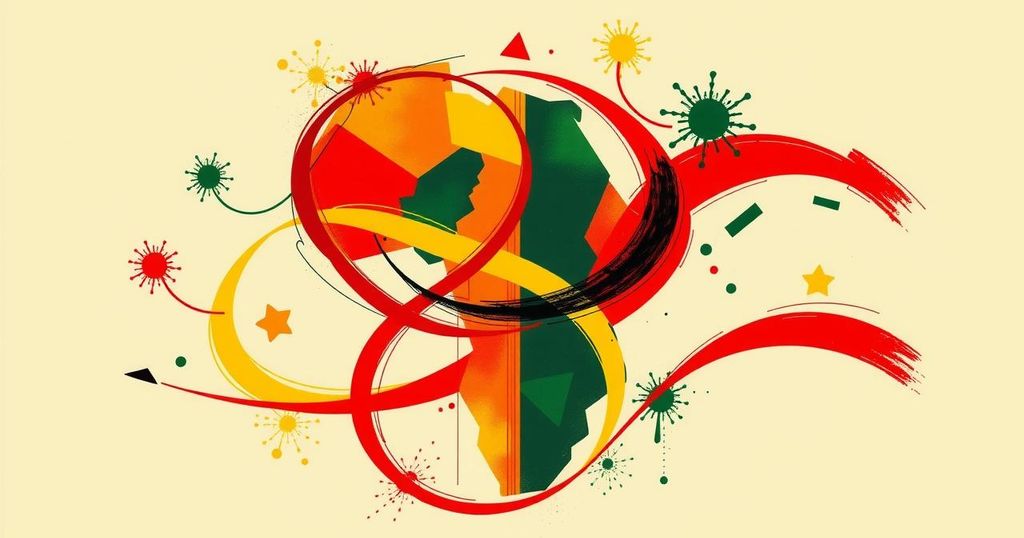World news
AFRICA, ALLIANCE DU CHANGEMENT, ALLIANCE LEPEP, BDP, BOTSWANA DEMOCRATIC PARTY, DEMOCRACY, ELECTIONS, GOVERNANCE, GOVERNMENT, MAURITIUS, MILITANT SOCIALIST MOVEMENT, NAMIBIA, NET, NETUMBO NANDI - NDAITWAH, OPPOSITION, PARLIAMENTARY SEATS, PR, PRAVIND JAGNAUTH, SAHARAN AFRICA, SWAPO
Michael Grant
0 Comments
Namibia Elections: Swapo Faces Electoral Challenges Amid Regional Changes
Swapo retains power in Namibia but experiences electoral setbacks, prompting widespread questions about governance. The ruling party’s struggles resonate across sub-Saharan Africa, where many incumbents face significant losses due to economic challenges and public discontent. This trend suggests a resilient democratic movement as opposition parties gain traction and successfully mobilize citizens.
Namibia’s ruling party, Swapo, has maintained its position after more than three decades, yet has experienced a noticeable decline in its power following recent elections. The Swapo candidate, Netumbo Nandi-Ndaitwah, emerged victorious in the presidential race, garnering 57% of the votes, and marking a historic moment as she becomes the first female leader. However, opposition parties contest the election’s legitimacy, citing significant logistical problems and irregularities during the polling process.
Additional questions arise regarding how Swapo’s presidential vote share increased despite its dismal parliamentary performance, wherein it lost 12 seats out of 63, barely clinging to a parliamentary majority. Swapo is not isolated in its electoral struggles; this year has proven to be particularly challenging for ruling parties in sub-Saharan Africa, with numerous incumbents facing difficulty in maintaining their grip on authority.
In recent elections across the region, many governing parties have either lost substantial seats or been ousted altogether, a trend rooted in several interrelated factors including economic downturn, rising public dissent against corruption, and the emergence of robust opposition parties. This pattern is anticipated to persist into the upcoming elections of 2025.
Remarkably, several 2024 elections resulted in overwhelming defeats for governments that previously held strong power. The Botswana Democratic Party (BDP), ruling since independence in 1966, suffered a significant loss in the October elections, reducing its 38 seats to only four, relegating it to a minor party in parliament. Similarly, in Mauritius, the Alliance Lepep coalition, led by Pravind Jugnauth, was reduced to just two seats, while opposition coalition Alliance du Changement swept 60 out of 66 seats in a dramatic political shift.
Senegal and Somaliland also witnessed opposition triumphs, with Senegal’s political landscape changing notably when main opposition leaders were released from imprisonment just prior to the elections. The opposition leader won decisively, capturing the presidency. Even governments that retained power, such as South Africa’s African National Congress (ANC), experienced significant challenges, falling below 50% of the vote for the first time since the end of apartheid and entering into a coalition government.
This year has marked a vibrant change in political engagement. Unlike countries with manipulated elections, citizens in Botswana, Mauritius, and Senegal expressed discontent over corruption and governmental mismanagement. The economic struggles faced by many, including rising food and fuel prices, increased public frustration. Such economic issues, alongside widespread youth-led protests in Kenya, drew parallels to global trends seen in other nations.
Notably, the elections across Africa this year demonstrated that opposition parties have evolved, employing strategies based on past lessons to safeguard their electoral process and unite voter bases. Moves toward coalition-building, as seen with the Umbrella for Democratic Change in Botswana, have also played a pivotal role.
As Ghana approaches its upcoming elections, similar patterns may challenge the ruling New Patriotic Party, potentially resulting in yet another transition of power. If this occurs, it would signify five opposition wins in 2024 alone, a record for sub-Saharan Africa. This electoral dynamic emerges amidst a global trend of declining democracy, suggesting African nations display remarkable democratic resilience. Civil society, alongside opposition forces, has mobilized to demand accountability from failing governments, presenting a compelling narrative of democratic recovery possible against the backdrop of authoritarianism.
In summary, the electoral landscape in sub-Saharan Africa has shifted remarkably, with citizens and opposition parties actively reshaping governance through democratic participation. This regional response offers valuable insights for understanding the larger patterns of democracy globally.
In conclusion, Namibia’s recent elections exemplify a broader trend within sub-Saharan Africa, where ruling parties, including Swapo, face mounting challenges to their authority. Factors such as economic distress, public demand for accountability, and the rise of cohesive opposition efforts have collectively led to significant electoral setbacks for long-standing governments. This pattern indicates a potential turning point in the region’s political dynamics and underscores the resilience of democratic movements amidst global authoritarian trends.
Original Source: www.bbc.com




Post Comment